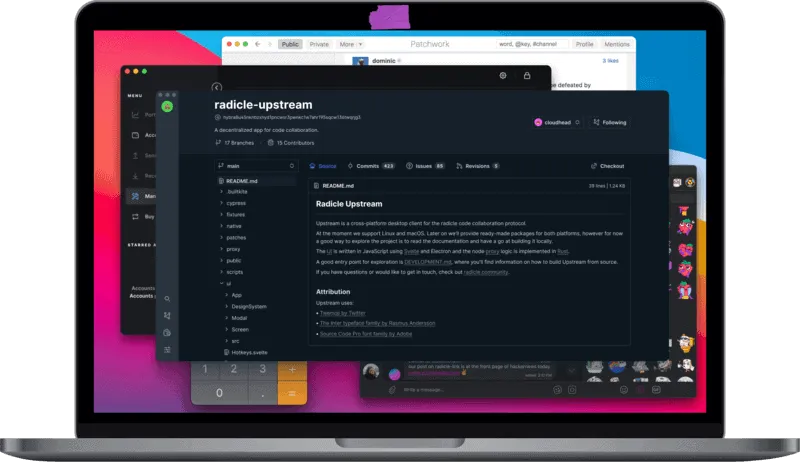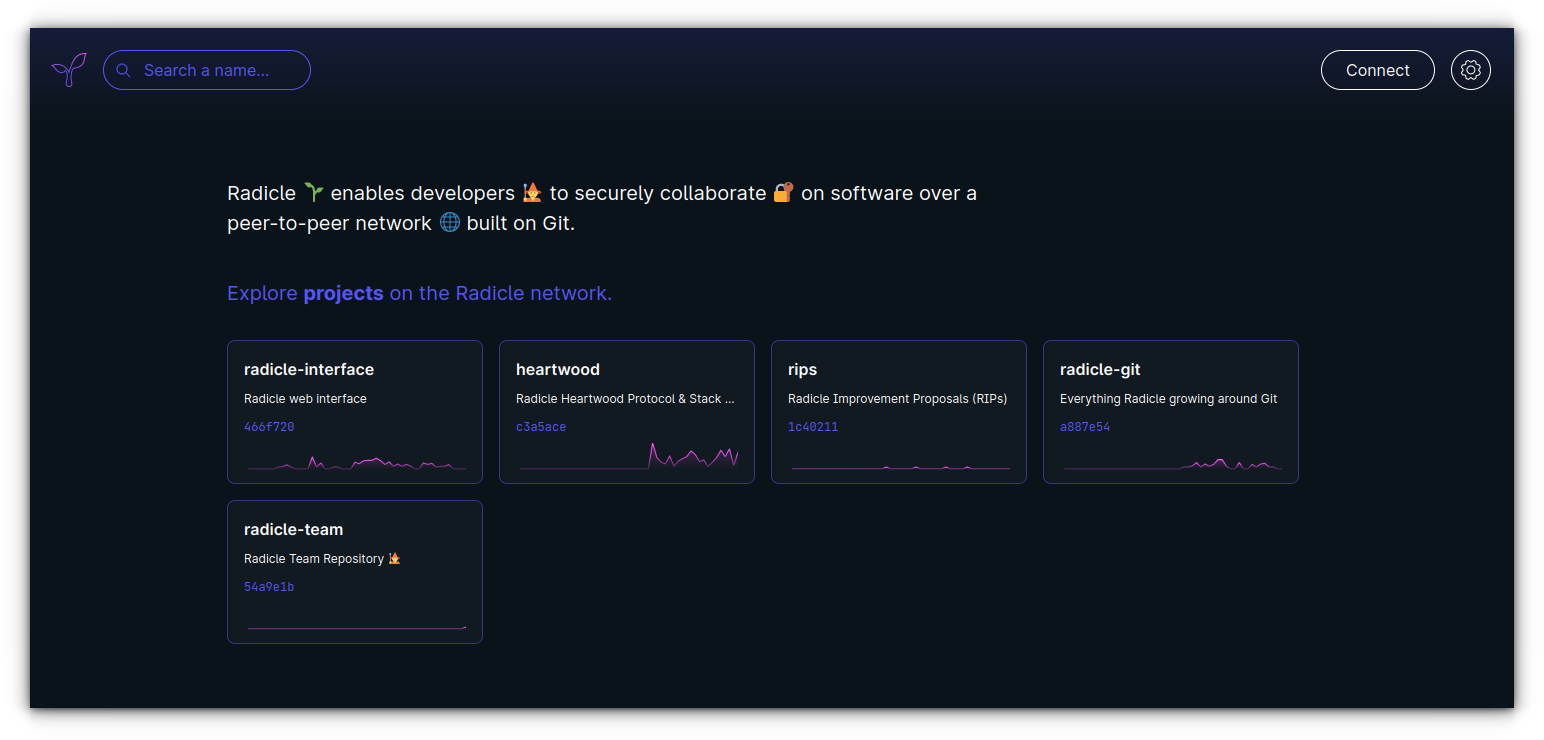
Most of the open-source projects that we talk about are usually hosted on GitHub or other GitHub alternatives like GitLab. Even though you get many benefits and features from such platforms (not to mention the potential exposure), there are also downsides to using them.
For instance, the youtube-dl project was taken down by Microsoft to comply with a DMCA request.
With a centralized approach, you do not have a lot of control and privacy. Of course, this may not be a big deal for many folks, but if you are someone who does not want centralized servers, want to have a peer-to-peer code collaboration feature, and something that works offline, Radicle will be a good tool for them.
Radicle: A Peer-to-Peer Code Collaboration Platform

Radicle is an open-source project that aims to provide a decentralized app for code collaboration. You can connect peer-to-peer if you need to share the project and work along with someone else.
It is still something in beta, but it is definitely worth looking at. I did some quick tests without our team to see if the basic features to share the project work or not.
But, before you try it out, let me highlight the important features that you get with Radicle and what you can expect from it in the near future.
Features of Radicle

- Ability to add multiple remote peers
- Manage multiple peers
- Feature to follow a project from a specific peer
- Share your project using a unique ID
- Does not depend on central servers
- No censorship
- One network interconnected with peers
- Ability to work offline
- Local issues & patches
- Built on Git to make it easy and comfortable for most developers
- Your infrastructure
- Ability to receive funding from your supporters (Ethereum)
- Manage codebases together
Expect more features for bug reporting and code review in the near future, considering that it is still in development.
Using Radicle on Linux
Radicle is available as a web app and a command line tool. There was a desktop client for Radicle, but it was discontinued. You can install the rad-cli through the following steps.
Install rad-cli with Homebrew
You can install rad-cli via homebrew. For this, you need to set up Homebrew Package Manager on Linux. Once done, run the following command to install:
brew tap radicle/cli https://seed.alt-clients.radicle.xyz/radicle-cli-homebrew.git
brew install radicle-cliInstall rad-cli in Debian/Ubuntu
In order to install rad-cli, you need curl installed. Open a terminal and run the following:
sudo apt install curl
curl https://europe-west6-apt.pkg.dev/doc/repo-signing-key.gpg | sudo apt-key add -
echo deb https://europe-west6-apt.pkg.dev/projects/radicle-services radicle-cli main | sudo tee -a /etc/apt/sources.list.d/radicle-registry.list
sudo apt update
sudo apt install radicle-cliThis will install rad-cli on your system. You can refer to their official help for more details on this command line tool.
Thoughts on Using Radicle
If you are familiar with the Git version control system, using this should be a breeze. I just did some basic testing where I created a test repository and shared it with my teammate.
It works quite well. But, you need to configure Git with your name and email address before you get started.
Of course, you will need the terminal to configure and use the git version control. You can explore more when you try to use it for your projects.
I’d advise you to experiment with it and go through the documentation, official site, along with their GitHub page before trying it out for an important project.
What do you think about Radicle? Do you think it will gain traction and be something popular among open-source developers?
Are you interested in other GitHub alternatives?
Suggested Read 📖

Let me know your thoughts in the comments below!
It's FOSS turns 13! 13 years of helping people use Linux ❤️
And we need your help to go on for 13 more years. Support us with a Plus membership and enjoy an ad-free reading experience and get a Linux eBook for free.
To celebrate 13 years of It's FOSS, we have a lifetime membership option with reduced pricing of just $76. This is valid until 25th June only.
If you ever wanted to appreciate our work with Plus membership but didn't like the recurring subscription, this is your chance 😃


